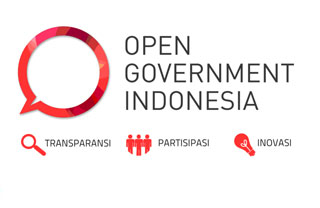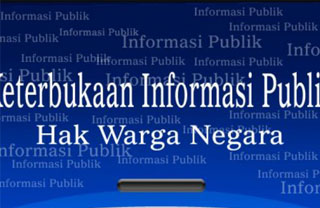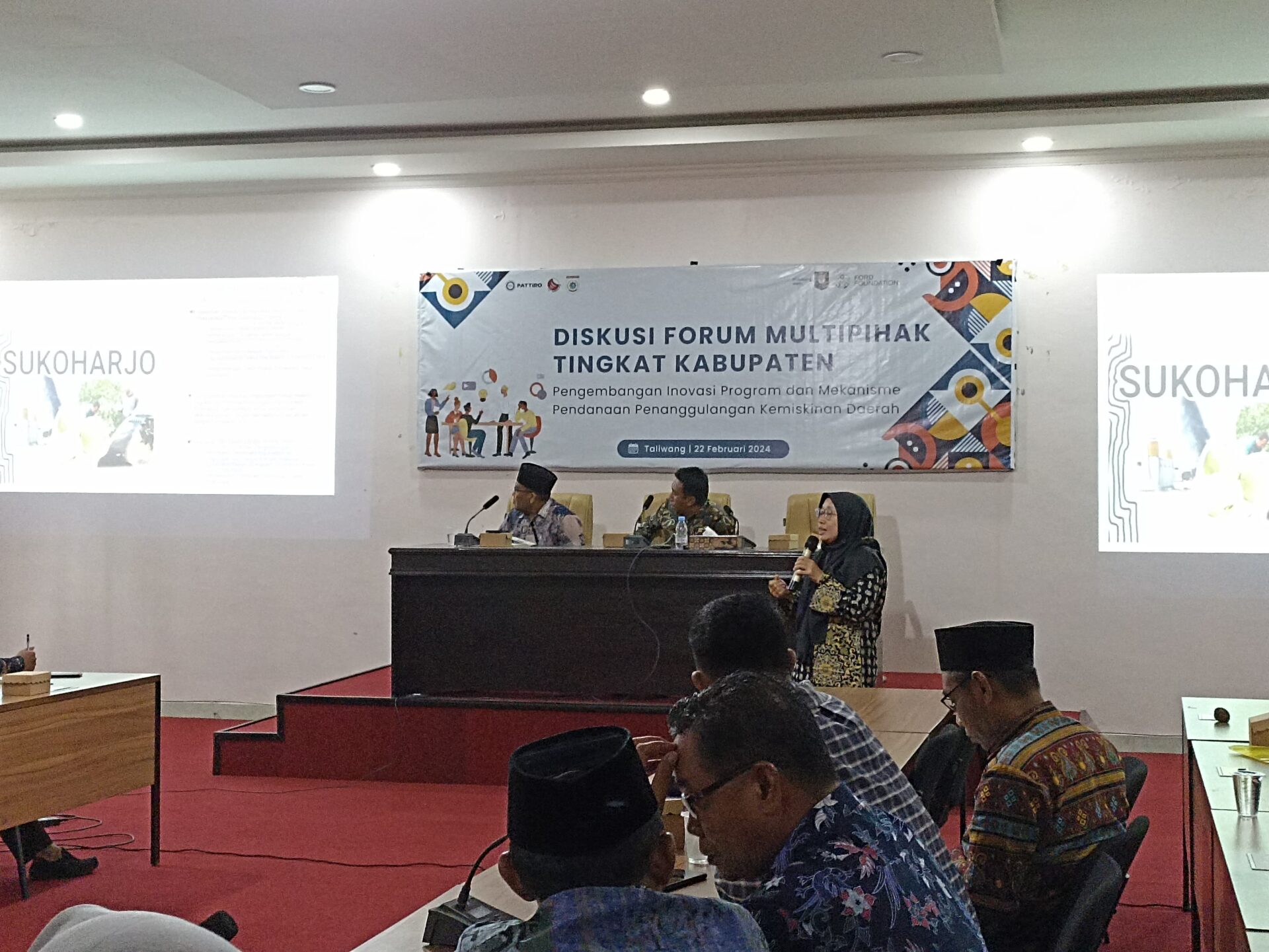 Accountability In the Perspective of Social Relations
Accountability In the Perspective of Social Relations
The term accountability is semantically related to accountancy, otherwiseknown as bookkeeping (Boven, 2008). [1] The concept of accountability can be traced to the reign of William the Conqueror, beginning with the Norman conquest of England in 1066. In 1085, Wiliam ordered all landowners in his territory to calculate the value of their possessions. That ownership was then appraised and recorded in the Domesday Book. This book recorded what or how much the King had in his possession, even the loyalty oath of landowners to the King (Dubnick, 2007). [2]
Based on this history, few experts have attempted to interpret accountability as a relationship between sovereignty holder and the implementer (subject) or what is known as a relationship between principal and agent or forum and actor (Bovens, 2008).[3]Tracing the use of the word Accountability in the United States Congress demonstrates the irony of its use (Dubnick, 2002): [4]
A quick count of titles placed in the House and Senate hoppers for the past several sessions of Congress indicate that the word is applied to 50-70 distinct proposals each two-year term. As reflected in the list from the current (107th) Congress, the focus of “Accountability” bills can range from specific individuals (Yasir Arafat) and nations (Syria) to industries (electricity providers), agencies (the IRS and the INS), professionals (accountants and pharmacists), and the members of Congress themselves. When examined in detail, the content of the proposed legislation rarely mentions the term again, except in provisions designed to change the titles of current laws so that they too can be adorned with the “Accountability” élan.
Another difficulty in using the term accountability is, as defined by Dubnick (2002), [5] “incommensurability”. This geometric term was first introduced by Thomas Kuhn to describe the inherent gap between a word and its translation it into cross-context and cross-culture words. Therefore, it is easier to understand accountability as a concept than attemptto find the correct translation.
In Indonesia, several parties have attempted to translate it as “tanggung gugat.” However, this translation still needs a deeper conceptual explanation to understand it. The term “accountability” is, thus, used more frequently and has entered public consumption ever since the issue of good governance became dominant in the reformation era, as is the case with the term “participation” and “transparency.”
Mulgan (2000) [6] stated that academic debate regarding accountability in the area of public administration can be traced back prior to the Second World War. The debate between Carl Friedrich (1940) [7] and Herman Finner (1941) [8] looked at the relations between public and bureaucracy within the context of the term “responsibility.” The debate revolved around whether a public servant must stand on professionalism and personal morale on one hand or else strictly follow orders from what are called “political masters” on the other hand. Friedrich [T1] emphasized the innate responsibility of bureaucracy to the professional standard and values, whereas Finner asserted a primary responsibility to the external political command. Those two different perspectives resulted in accountability becoming what is called an ever-expanding concept (Mulgan, 2000). [9] This has led to a general theme to explain various mechanisms that allow an institution to be responsive to a particular public (Mulgan, 2003). [10]
Principal–Agent Relationship
In its development, discussions on accountability lead to efforts to dig into an organization’s internal structure, which relies on the professional aspect on one hand and external relations (social and political responsibility) on the other. The effort to differentiate the two has been pioneered by Boven (2008), [11] through distinguishing accountability as a virtue from accountability as a social relation.
Particularly, but not exclusively, in American academic and political discourse, accountability is used mainly as a normative concept, as a set of standards for the evaluation of the behaviour of public actors… [t]he focus of accountability studies is not whether the agents have acted in an accountable way, but whether they are or can be held accountable ex post facto by accountability forums.
On the practical level, implementation of accountability mechanisms and to whom it is given (principal-agent relationship) has created multiple accountability zones. In a couple of discourses, it is often mentioned as a relationship between forum and actor. Focus is not whether the procedure taken by the actor is accountable, but whether the actors are considered as accountable by the forum.
When an accountability mechanism enters the parliamentary field, it is referred to as political accountability. In the jurisprudential field, it is known as the legal accountability. When a mechanism enters administrative areas, it is known as administrative accountability. As an example, administrative accountability can be found when a public institution has to be responsible for the consistency of their administrative procedures to the Ombudsman, or their financial management auditor. When a mechanism addresses the relations between a public institution and its citizen or civil society, it is known as social accountability (Bovens, 2008).[12]
Social Accountability and Open Government
In a January 2009 Memorandum, American President Obama stated that “democracy requires accountability, and accountability requires transparency.” Furthermore, he stated that the “Freedom of Information Act (FOIA) should be administered with a clear presumption: In the face of doubt, openness prevails.”[13]This statement emphasized the belief that accountability is the purpose of transparency implementation in Open Government policy in the US.
The FOIA, passed in 1966, is intended to provide the citizenry with the ability to access information as members of a democratic society, fight corruption and ensure that the government is accountable (Jennifer Shkabatur, 2012).[14] With the FOIA, citizens are expected to be able to do all the things above without having to go through a political process.[15]
In reality, transparency is important, however it is not enough for social accountability. The transparency that has been implemented through the FOIA by the Obama administration has not been able to push for true accountability because of several obstacles such as: (i) FOIA dependency on the information requestor; (ii) the press considers the information administration to be time-consuming, too expensive and requires particular skills when pursued through the legal process (litigation).[16]
The two above facts are not experienced only in the US, but also in several countries including Indonesia that also have their own FOI laws. However, Information Communication Technology (ICT) utilization through Open Government policy is expected to solve those issues; this policy is known as Open Data. Through a policy of Open Data, government data and information is placed in public spaces in a machine-readable format so that the public can access them without having to get permission from the authority. This policy is hoped to overcome administrative obstacles.
In some instances, implementing Open Government without Open Data is seen as nothing more than a discourse within policy. Implementing Open Data in Open Government is considered as having more impact in creating public accountability (Yu and Robinson, 2012): [17]
[t]he term “open government” has become too vague to be a useful label in most policy conversations. Open data can be a powerful force for public accountability—it can make existing information easier to analyze, process, and combine than ever before, allowing a new level of public scrutiny.
However, not all parties are tuning in to the same frequency: it has been discussed previously that accountability is a social relations (principal-agent relationship). Peixoto (2012)[18] explained that accountability mechanisms seen from a public disclosure perspective are, at least, connected with: (1) openness of government information; (2) disclosed information reaching its audience: the public; (3) society’s ability to process disclosed information and react to it; (4) public officials’ responsiveness to public reaction/their ability to be sanctioned by the public through constitutional means.
According to Peixoto, transparency is only an early step to accountability. The rest is determined by two things: publicity situation (e.g. freedom of the press) and political institution situation (e.g. freedom in political and civil liberty). Peixoto monitored the relations between implementation of Open Government Data and accountability in several countries. In countries where the conditions mentioned above were not satisfied, implementation of Open Government Data has not had a strong influence for accountability.[19] Therefore, implementation of Open Government Data is not the strongest factor in pushing for social accountability, but rather, the publicity situation and political and civil liberty conditions are.
[1] Bovens, Mark. Two Concepts of Accountability. Utrecht: Utrecht School of Governance, Utrecht University, 2008, page 8.
[2] Dubnick, M.J. Sarbanes-Oxley and The Search for Accountable Corporate Governance, at ERSC/GOVNET Workshop The Dynamics of Capital Market Governance: Evaluating The Conflicting and Con-flating Roles of Complience, Regulation, Ethics and Accountability, Australian National University, Canbera, Autralia, 14-15 March 2007, page 11-13.
[3] Op.cit. page 18-19.
[4] Dubnick, M. J, Seeking Salvation for Accountability. Paper presented at Annual Meeting of the American Political Science Association, Boston. August 29-September 1, 2002, page 2.
[5] Ibid. page 4.
[6] Refer to Mulgan, R. Accountability: An ever expanding Concept? Public Administration, Blackwell Publishing Ltd, Oxford, UK, 2000, 78: page 555.
[7] Friedrich, C. J. Public Policy and the Nature of Administrative Responsibility. Public Policy, Cambridge: Havard University Press, 1940, page 3-24.
[8] Finner, H. ‘Administrative Responsibility and Democratic Government’. Public Administration Review 1, 1941, page 335-350.
[9] Op. cit.
[10] Refer to Richard Mulgan’s explanation in Holding Power to Account: Accountability in Modern Democracies. Basingstoke: Palgrave. 2003.
[11] Bovens, Mark. ‘Two Concepts of Accountability: Accountability as a Virtue and as a Mechanism’, in West European Politics, 2010, 33: 5, page 946- 967.
[12] Ibid.
[13] Presidential Memorandum, subject: Freedom of Information Act. January 21, 2009
[14] Shkabatur, Jennifer, Transparency With(out) Accountability: Open Government in the United States (March 25, 2012). Yale Law & Policy Review, Vol. 31, No. 1, 2013. page 13
[15] Jennifer quoted the case NLRB v. Robbins Tire & Rubber Co., 437 U.S. 214, 242 (1978); and Dowdle, supra note 3, at 6: explaining that FOIA’s goal was “to allow a much wider range of civil society to hold public officials to account even without directly participating in political decision making”
[16] Opcit. Hal. 12
[17] Yu, Harlan dan Robinson, David G. in The New Ambiguity of Open Government. UCLA Law Review Discourse, 59 (2012), page 185
[18] Peixoto, Tiago. The Uncertain Relationship Between Open Data and Accountability: A Response to Yu and Robinson’s The New Ambiguity of “Open Government”. UCLA Law Review Discourse, 60 (2012), page 203.
[19] Ibid. page 208-213
[T1]Join with previous paragraph, Lebih cocok kalau jadi satu ayat aja.





